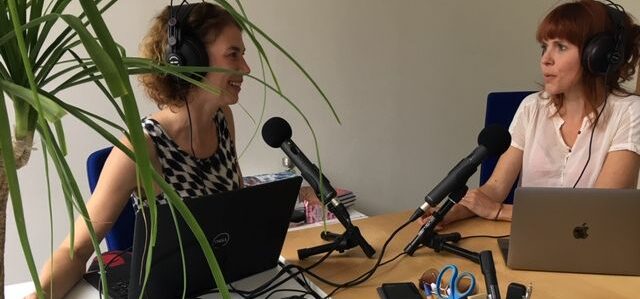September 29, 2020
Memory: securing the past and imagining the future
Memory and narratives play a crucial role in transitional justice. What do we remember of past violence, and how do we narrate those memories? In which ways can such narratives, in all their complexity, help us to better understand violence? Literature is one place where we often find narratives of violence, but also in transitional justice narratives are everywhere.
In this podcast episode, we talk to Lyndsey Stonebridge, Professor of Humanities and Human Rights at Birmingham University. In her book ‘The Judicial imagination: writing after Nuremberg’ she touches upon issues such as what it means to tell a story, how we listen, and how to make sure that victims’ voices are adequately captured?
June 30, 2020
Universal jurisdiction: the unthinkable becomes thinkable
How to hold perpetrators of crimes against humanity or war crimes accountable?
Bringing perpetrators of crimes against humanity, war crimes, or genocide to justice is a complex task, and it tends to be extremely difficult to find courts willing to prosecute perpetrators within the territories where crimes have been committed.
However, when domestic trials or referrals to an international court are not possible, universal jurisdiction offers a way to prosecute perpetrators of these crimes in other states.
Universal jurisdiction has thus made the unthinkable thinkable: allowing for the prosecution of internationally recognized crimes beyond the borders where they took place.
In this episode, we take as a starting point the cases currently taking place in Germany against former officials of the Syrian regime.
We talk to Naomi Roht-Arriaza and Thijs Bouwknegt about the meaning, impact, and challenges of trials taking place under universal jurisdiction.
What can the courts actually do in such complex cases and what is the role of international solidarity in this story? What is the impact of such international efforts on both victims’ expectations and local justice efforts?
Naomi Roht-Arriaza is Professor of Law at The University of California Hastings College of the Law. She is the author of the impactful publication The Pinochet Effect: transitional justice in the age of human rights.

Thijs Bouwknegt is a researcher at NIOD and Assistant Professor at the University of Amsterdam (UvA). His expertise is transitional justice, the ICC and universal jurisdiction.

Photo on the left: Feras Fayyad, Wafa Mustafa, and Anwar Al-Bunni outside the courthouse in Koblenz, Germany.
© European Center for Constitutional and Human Rights
May 28, 2020
What about social and economic rights?
What’s the first thing that comes to mind when you think about human rights violations? Chances are that you are thinking about issues like torture, political detention, disappearance or extrajudicial killings – in other words, violations of civil and political rights. This set of rights continues to enjoy a privileged status in a lot of the human rights scholarship and practice.
Unsurprisingly, violations of these rights have also been the focus of most transitional justice interventions. In the past decade, however, we’ve witnessed more attention for violations of economic, social and cultural rights: when combatants poison a drinking well, burn crops or loot health infrastructure, these are acts that constitute violations of economic, social and cultural rights – and they can be prosecuted.
Moreover, violations of economic, social and cultural rights are often related to violations of civil and political rights, as well as to larger issues of social and economic injustice – but how exactly?
In recent years, a lot of excellent scholarship and practice started to provide answers to this question.
In this episode, we talk to three experts on this topic:
Evelyne Schmid from the University of Lausanne is a leading expert on social, economic and cultural rights and international criminal justice.
Simon Robins is a humanitarian practitioner and senior research fellow at the University of York working on social-economic justice.
Zinaida Miller is Assistant Professor of International Law and Human Rights at the School of Diplomacy and International Relations at Seton Hall University
Together with them, we explore what room there is within the existing legal framework of transitional justice, as well as beyond it, to pay more attention to social and economic rights and needs. How can and should transitional justice engage with these issues? What are the pitfalls? And what if victims were the ones to shape the transitional justice agenda: would they prioritize truth and justice, or rather their social and economic needs? And is there really such a strong dichotomy?
April 30, 2020
Victimization
When talking about victim participation in transitional justice processes, we need to better understand the notions of victim, victimhood, and victimization, as well as the related phenomena of retraumatization and tertiary victimization. In this episode, we talk to scholars, practitioners, and artists to arrive at a more responsive and empowering understanding.
April 1, 2020
The evolution of the field (with Laurel Fletcher)
From the previous episode, it became clear how strongly the field of transitional justice is interwoven with that of international criminal justice. What does that mean for the evolution of the field of transitional justice and where it is going, especially with regard to the role played by victims in this process? In this episode we talk to Laurel Fletcher, director of the International Human Rights Law Clinic at Berkeley Law, to better understand where we come from and where we are headed, and what the most important evolutions are to expect in the next decade.




